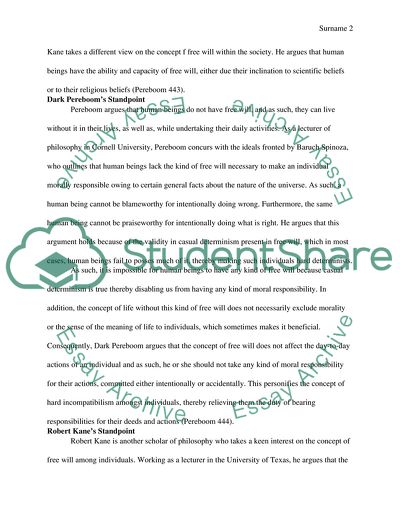Cite this document
(Free Will Essay Example | Topics and Well Written Essays - 1750 words, n.d.)
Free Will Essay Example | Topics and Well Written Essays - 1750 words. https://studentshare.org/philosophy/1815085-free-will
Free Will Essay Example | Topics and Well Written Essays - 1750 words. https://studentshare.org/philosophy/1815085-free-will
(Free Will Essay Example | Topics and Well Written Essays - 1750 Words)
Free Will Essay Example | Topics and Well Written Essays - 1750 Words. https://studentshare.org/philosophy/1815085-free-will.
Free Will Essay Example | Topics and Well Written Essays - 1750 Words. https://studentshare.org/philosophy/1815085-free-will.
“Free Will Essay Example | Topics and Well Written Essays - 1750 Words”. https://studentshare.org/philosophy/1815085-free-will.


